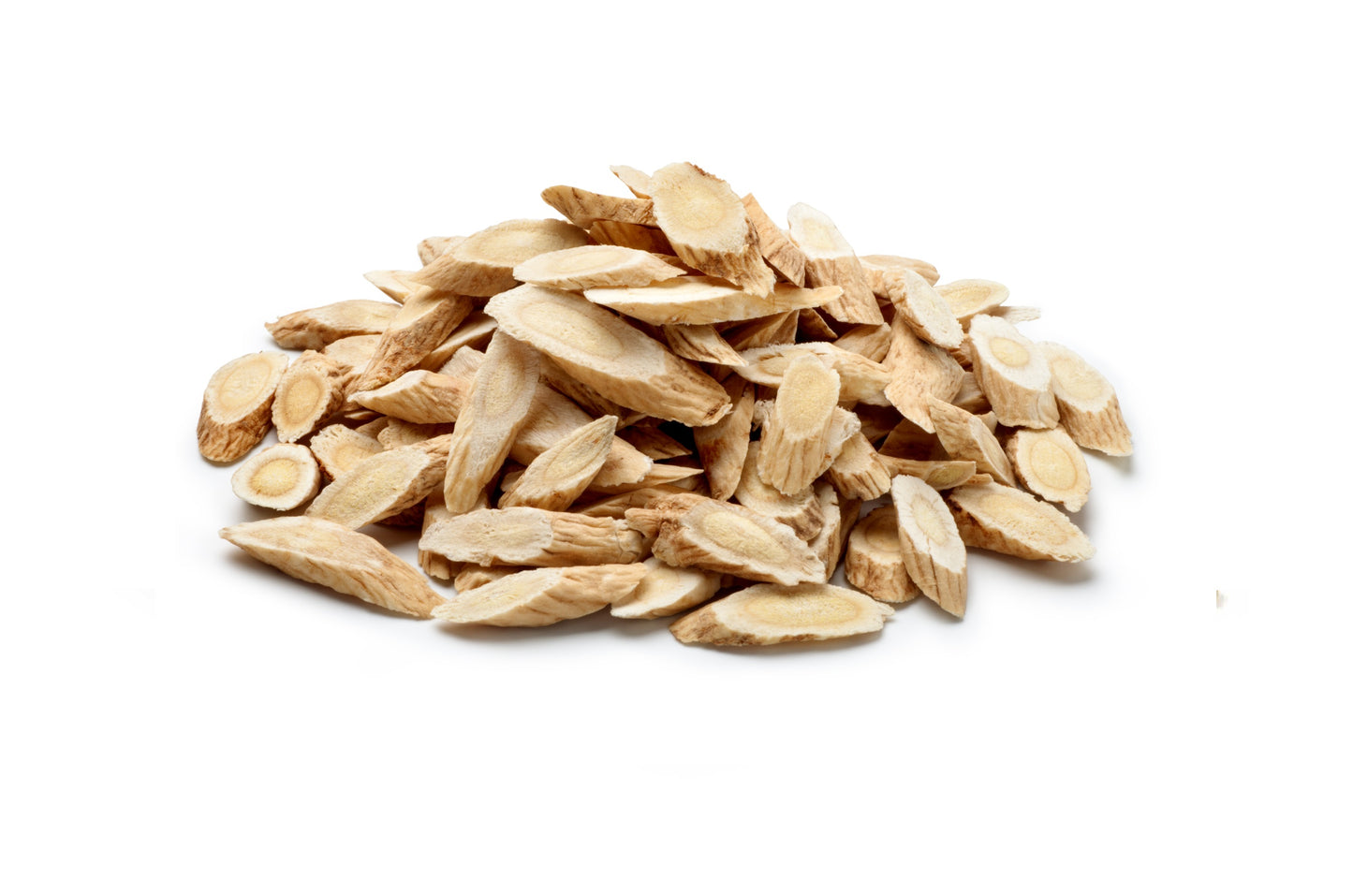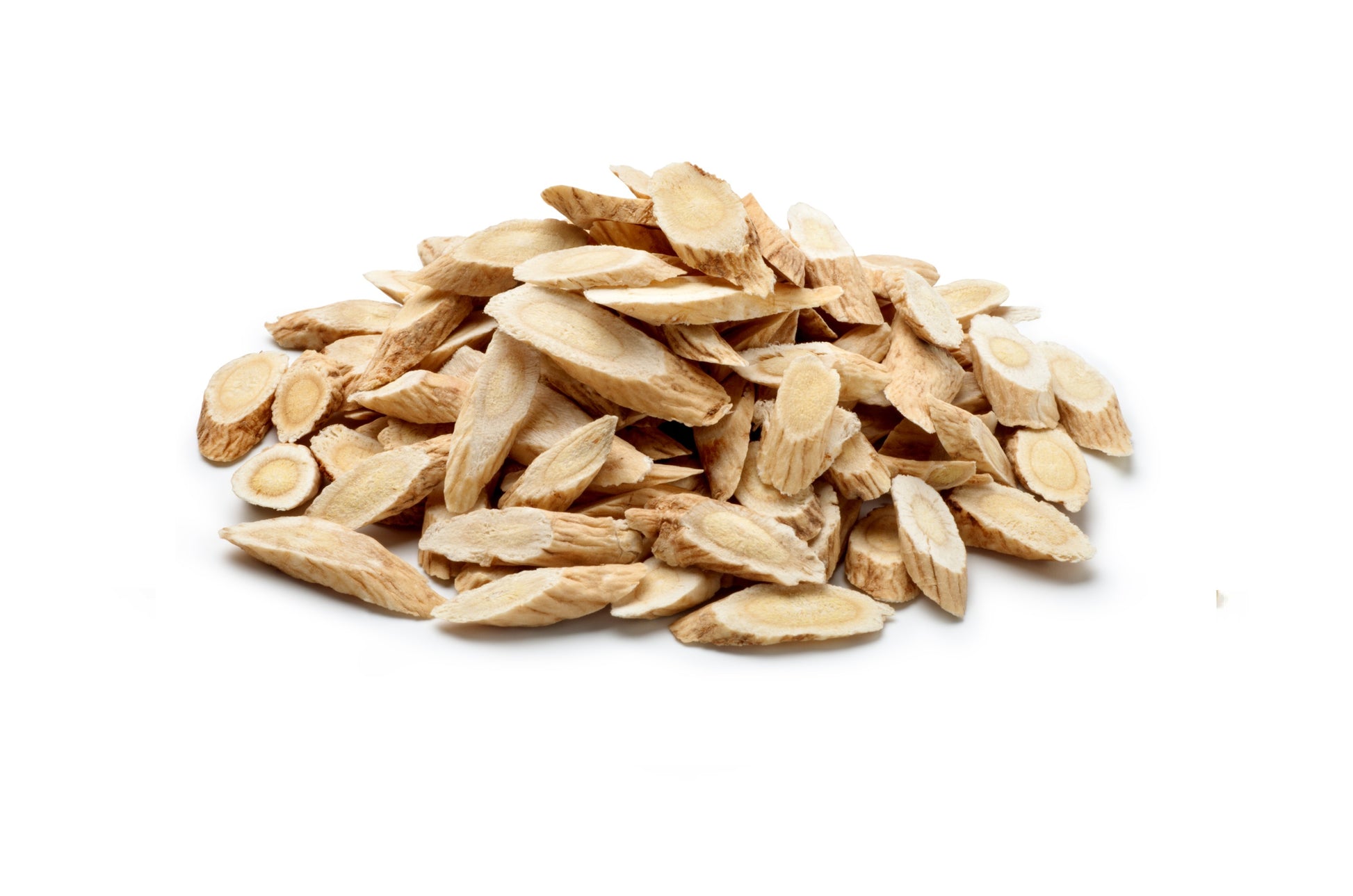BioComplete Astragalus Root Powder
BioComplete Astragalus Root Powder
Couldn't load pickup availability
Astragalus membranaceus, milk vetch, huang qi (Chinese), ogi (Japanese), and hwanggi (Korean).
Astragalus is the chief energy tonic of traditional Asian medicine. A graceful, flowing plant with long stems bearing paired, pointed leaves and purple flowers, the astragalus is harvested for its roots that are white when dug out of the ground but become yellow as they are dried.
Astragalosides and other immunostimulant polysaccharides, beta-sitosterol, flavonoids, and trace minerals, especially selenium.
The dried root in the form of tea, encapsulated or as an extract. Powder is mildly sweet and may be sprinkled on food or whipped into a shake or smoothie.
This information has not been evaluated by the Food and Drug Administration. It is not intended to diagnose, treat, cure, or prevent any disease. These food products may be beneficial for supporting optimal health.
For educational purposes only.
Capsules available upon request.

-
Safe Payments
-
Fast Delivery
-
Easy Returns
-
24x7 Customer Support


